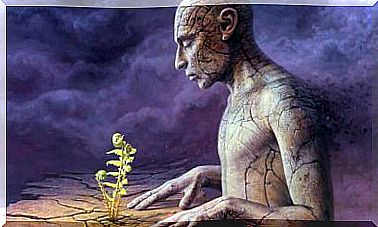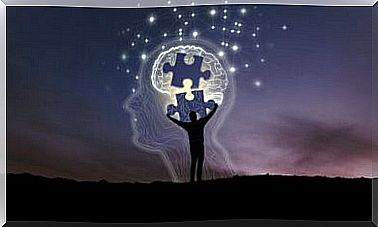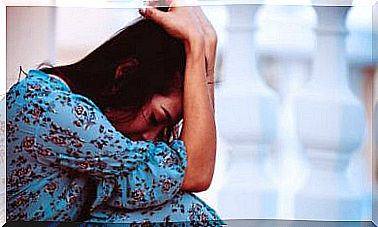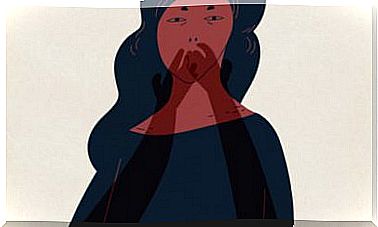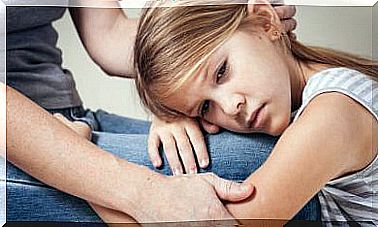The Dueling Experience
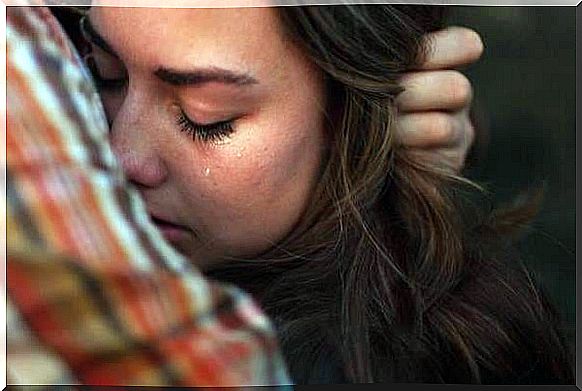
The biography of each one of us is full of a succession of losses and separations that remind us of the provisional nature of all ties or relationships and of all reality, whether consciously or unconsciously.
Grief is the psychological reaction to loss, the resulting emotional pain after losing something or someone significant in our lives. This psychological reaction not only has emotional components, but also physiological and social ones.
The duel
When we talk about grief on a daily basis, most of the time we associate it with death, but this process can also be found after the breakdown of a relationship, the loss of a job or the loss of a relational object to which a strong bond united us. Thus, the grieving process means that after the loss, we must adapt to a new life without that person or thing, its elaboration being the reconstruction of meanings.
Usually the grieving process is resolved naturally, understanding this as a normal process limited in time, advancing its evolution towards improvement, being able to strengthen our maturity and personal growth.
But just as it is recognized that it is a “natural” process that involves great suffering for most people, it is also known that this process can be complicated in others, causing disorders if the symptoms are maintained over time and affect to the development of daily life, many people being stagnant in some of its phases without getting rid or saying goodbye to everything they lost.

Determining when a duel has really ended is a difficult task, although a key moment is considered to be one in which the person is able to look back, that is, towards their past and remembers with serene and calm affection, with sorrow but without pain, to the person who left and their shared story.
Normally the elaboration of this whole process lasts between one and two years, depending on each person, the closeness and the quality of the bond that existed.
Elaborate the duel
The elaboration of a duel involves going through different stages in which very painful emotions can predominate. These stages are not seen as fixed and ordered periods, rather they tend to overlap, containing a mixture of emotions and responses.
Thus Worden, as a therapeutic background for the entire process, describes the tasks that the person has to carry out in grief:
- Accept reality.
- Experience the pain of grief.
- Adapt to a world in which the missing person is absent.
- Emotionally relocate the deceased and look to the future.

What can we do to process a grief?
Here are some recommendations that can help us develop our grieving process:
- Accept and understand that grief is a natural process that has its time, without trying to rush it. Being able to face loss and go through it in an adaptive way will generate greater confidence, developing new aspects and mechanisms.
- Do not resist change. A transformation occurs after the loss of people and roles that occupy a central role in our lives. It is best to embrace these changes, seizing the opportunities they present for growth while acknowledging where they have impoverished us.
- Express our emotions and feelings. Communicate them, do not repress them and if necessary seek help from a professional.
- Surround ourselves with life, activate our social relationships, learn something new or do physical activity for example, according to our age and health condition.
- Find new ways of living, creating and developing projects.

When to seek help?
There is nothing “abnormal” about the pain, suffering and disorders that accompany grief, but there are certain symptoms that indicate that we should go to a professional, even if the decision is ultimately up to each one of us.
According to Robert A. Neimeyer, you should seriously consider talking to someone about your grief if you have any of the following symptoms:
- Intense feelings of guilt
- Suicidal thoughts
- Extreme despair.
- Prolonged restlessness or depression.
- Physical symptoms (substantial weight loss, feeling of having a knife stuck in the chest, etc.)
- Uncontrolled anger.
- Continuous operating difficulties.
- Substance abuse.
Although any of these symptoms may be characteristic of a normal grieving process, its continuity over time should be a reason for concern and attention to go to a professional.

